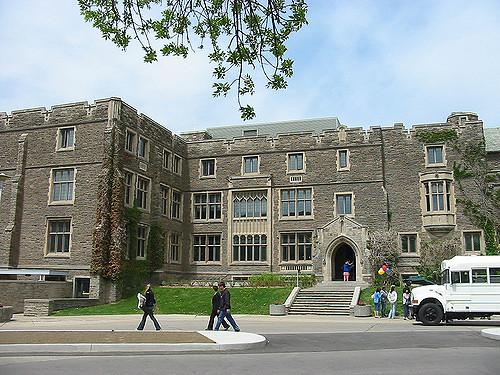TORONTO—Recent events on Canadian campuses highlight the pro-Beijing stance promoted among Chinese students that target groups persecuted by the Chinese regime.
The Epoch Times has obtained a copy of a statement in Chinese issued by the McMaster University Chinese Students and Scholars Association (Mac CSSA) and four other organizations that condemns an event held at the university in support of Uyghur Muslims persecuted in China, telling its members that it is asking the university to ensure that the dignity of “Chinese students is not infringed upon.”





